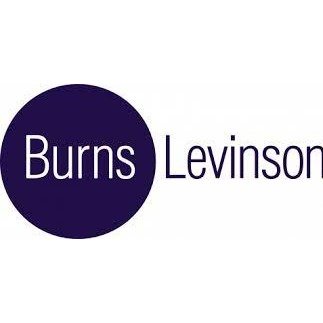Best Tax Increment Financing Lawyers in Boston
Share your needs with us, get contacted by law firms.
Free. Takes 2 min.
List of the best lawyers in Boston, United States
About Tax Increment Financing Law in Boston, United States
Tax Increment Financing (TIF) is a public financing method used to subsidize infrastructure and community-improvement projects. In Boston, TIF is used to stimulate economic development by capturing the future tax benefits of real estate improvements. The difference between the original assessed value and the increased value-known as the increment-is used to fund the development costs. This mechanism allows Boston to foster growth in areas that may otherwise struggle to attract private investment.
Why You May Need a Lawyer
Legal expertise in TIF is vital for several reasons. Businesses or developers seeking to engage in a TIF project may need help understanding the complexities of local legislation, negotiating terms, and ensuring compliance with state and municipal guidelines. Furthermore, lawyers can assist local governments in structuring TIF proposals, agreements, and financial assessments. A legal professional can help mitigate risks and navigate disputes that may arise during project execution.
Local Laws Overview
Boston’s TIF laws are governed by both Massachusetts General Laws and city ordinances. Key aspects include the eligibility of projects, assessment valuation methods, and revenue allocation principles. The local laws also define the criteria for issuing TIF bonds and outline the reporting requirements for transparency and accountability. Understanding these local frameworks is crucial for successful TIF applications and implementation.
Frequently Asked Questions
What is the purpose of TIF in Boston?
TIF is intended to encourage economic growth in underdeveloped areas by using future tax increments generated from improvements to finance infrastructure and public projects.
Who can apply for TIF in Boston?
Typically, developers, business owners, or municipalities can apply for TIF in Boston; however, they must meet specific project criteria and community benefit standards.
How does TIF impact local property taxes?
While TIF captures the increment of property taxes, it does not increase taxes for home and business owners beyond the natural increase due to property value growth.
Is there a maximum duration for a TIF agreement?
Yes, TIF agreements in Boston generally span 20 to 30 years, depending on the scale and expected timeline of the project.
What types of projects are eligible for TIF?
Projects that revitalize blighted areas, create jobs, or significantly enhance community assets are typically eligible for TIF.
Can homeowners benefit from TIF?
While direct benefits are less common, homeowners may benefit from increased property values and enhanced community infrastructure as a result of TIF projects.
How is the "increment" in TIF calculated?
The increment is the difference between the property's base value before development and its improved value following project completion.
What happens if a TIF project is unsuccessful?
If a TIF project fails, the responsibilities for debt repayment typically remain with the project developer or are covered through a back-up funding mechanism stipulated in the agreement.
What role do public hearings play in TIF agreements?
Public hearings ensure community involvement and transparency by allowing stakeholders to express opinions and concerns about proposed TIF projects.
How can TIF be used in urban development?
TIF can support urban development by financing public works, such as road improvements, utilities, and public facilities, which make areas more appealing for investment and residency.
Additional Resources
For further information on TIF, Boston residents and developers can consult the Massachusetts Department of Revenue, the Boston Planning & Development Agency, and local legal firms specializing in real estate and municipal law. These organizations offer guidance and resources for navigating TIF projects and policies.
Next Steps
If you require legal assistance related to TIF in Boston, consider contacting a lawyer who specializes in public finance or real estate development. Begin by gathering detailed information about your project and objectives. Schedule consultations with potential legal advisors to discuss your needs, their expertise, and their approach to handling TIF-related matters. Finally, select a lawyer based on their experience, recommendations, and your comfort level with their proposed strategy.
Lawzana helps you find the best lawyers and law firms in Boston through a curated and pre-screened list of qualified legal professionals. Our platform offers rankings and detailed profiles of attorneys and law firms, allowing you to compare based on practice areas, including Tax Increment Financing, experience, and client feedback.
Each profile includes a description of the firm's areas of practice, client reviews, team members and partners, year of establishment, spoken languages, office locations, contact information, social media presence, and any published articles or resources. Most firms on our platform speak English and are experienced in both local and international legal matters.
Get a quote from top-rated law firms in Boston, United States — quickly, securely, and without unnecessary hassle.
Disclaimer:
The information provided on this page is for general informational purposes only and does not constitute legal advice. While we strive to ensure the accuracy and relevance of the content, legal information may change over time, and interpretations of the law can vary. You should always consult with a qualified legal professional for advice specific to your situation.
We disclaim all liability for actions taken or not taken based on the content of this page. If you believe any information is incorrect or outdated, please contact us, and we will review and update it where appropriate.

















